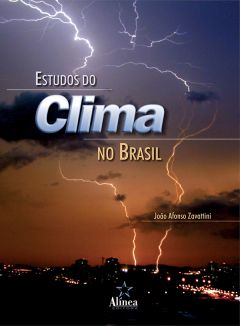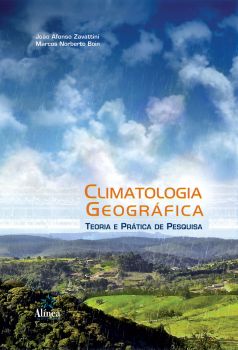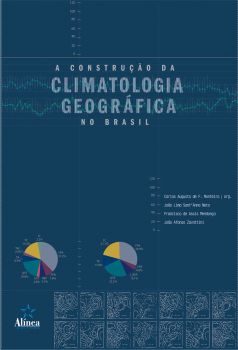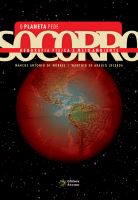The Construction of Geographical Climatology in Brazil
My most significant contribution as a geographer, along the second half of the 20th century, without a doubt was directed towards Climatology. Until then, mostly known as “Elements of Meteorology", the Climate study inside Geography was more connected with the quantification of atmospheric elements without the necessary genetic qualification and the behaviour dynamic of processes.
Against general procedure, I saw myself in search of a conceptual revision and a revision of behaviour practices (dynamics), then initiated by the Polar Front Theory (1917). Slowly but surely, I elaborated a series of articles, book chapters, didactic advices geared towards high school teachings, until I started working with special projects, thesis and theoretical ponderings in hopes of producing a new paradigm that left behind the static field, exclusive of the arithmetic mean, towards the rhythmic dynamic.
At this point in my life, having surpassed eighty years of age, I have called on this book's co-authors in hopes of discussing a guideline on how to “distribute” another work which so far has taken a long time to reach a more effective practice, insofar as it having been developed over a century ago.
I hope that the current efforts of distribution offer some benefits for the Geography students and the recently-graduated Geographers, and that, abroad, it manages to receive some attention as means to point out that, in the southern hemisphere, in Latin America, and more specifically in Brazil – which has grown, and continues to grow, culturally and economically – we are able, also, to offer suggestions in this specific area.
Carlos Augusto de Figueiredo Monteiro
- 1a edição
- Março/2015
- R$54,00
- Preço de capa
- 978-85-7516-751-9
- ISBN
- 170
- Páginas
- 16 x 23 cm
- Formato
- Inglês
- Idioma
na livraria virtual


Sumário
Introduction
Chapter 1
The “Monterian” Matrixes of the Development of Brazilian Geographic Climatology
João Lima Sant’Anna Neto
Brazilian protoclimatology: the pre-monterian period
Advances of Dynamic Meteorology: Bjerknes and Rossby and the schools of Bergen and Chicago
Development of a geographic approach to climate: periodization attempts in Geographic Climatology
The impact of the works of Max Sorre and Richard Hartshorne
The “monterian” matrices to develop a paradigm: the rhythm
Final considerations
Chapter 2
“Climate” in Geography
Carlos Augusto de Figueiredo Monteiro Conceptual review
The proposal of a new paradigm
Urban climates
A theory reference chart for urban climate studies (urban climate as an adaptive dynamic system)
Chapter 3
Study of the SCU – Urban Climate System – In Brazil: applications and advancements
Francisco Mendonça
Brazilian urbanization and its problems beginning in the middle of the 20th century
Problems of urban climate: the SCU (Urban Climate System) proposal by Monteiro (1976)
SCU – Application, case studies and advancements in Brazil
Summarizing the topic
Chapter 4
Atmospheric Dynamics and Rhythmic Analysis: the contribution of Brazilian Carlos Augusto de Figueiredo Monteiro to the France of Pédelaborde and to the Italy of Pinna
João Afonso Zavattini
Preamble
The french influence on Geography courses in Brazil and its repercussion within climatology
The acceptance of Sorre’s Climate concept: Monteiro, Pédelaborde and Pinna
Monteiro’s rhythmic analysis lands in France: Besancenot gets mixed up and causes amazement!
Final considerations
Endnotes









